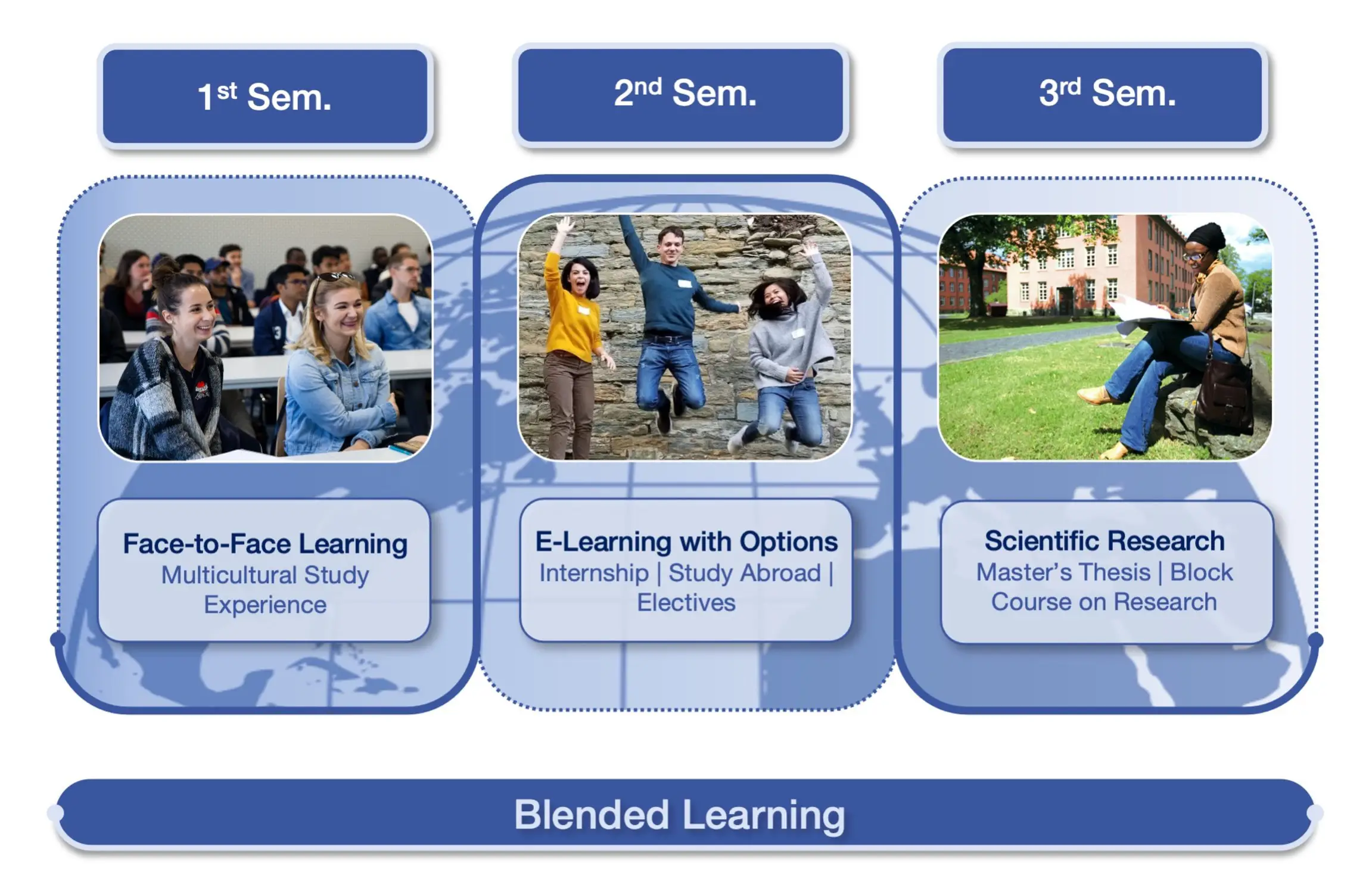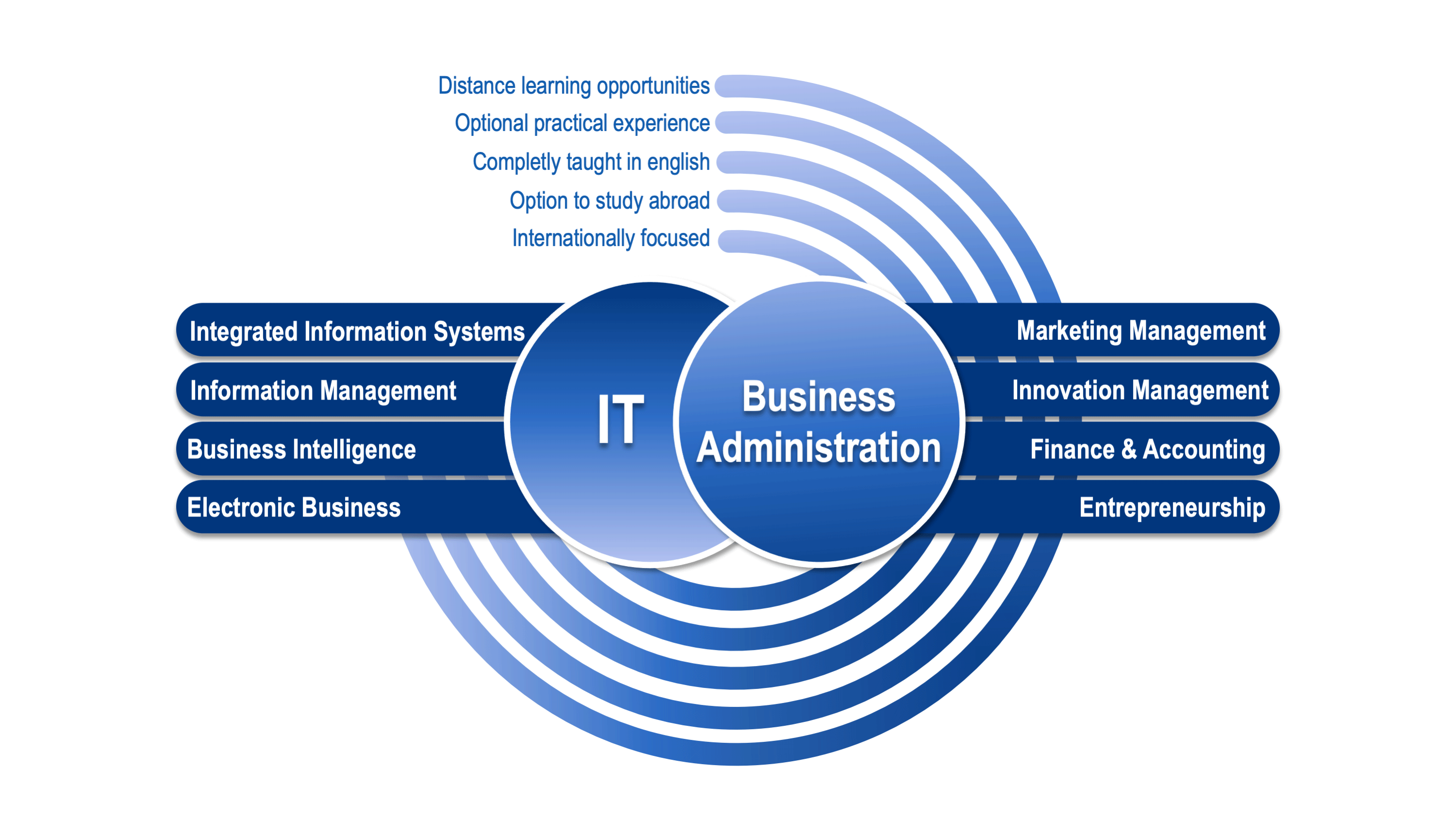Program Structure
Blended Learning approach with an "External Option"
The degree course International Management & Information Systems follows a blended learning approach. Only the first semester is designed as an on-site studying experience. The second semester is designed as an off-campus experience. This means that the modules are organized completely as online classes, allowing for distance-learning opportunities as a practical semester at a business organization, or as pre-structured credit options with international partner universities.
The third semester is used exclusively for the Master’s thesis, along with a block seminar on research methods, and can be arranged flexibly. The thesis can be written either with a research-based focus or with a practice-oriented focus in cooperation with a partner business organization.



